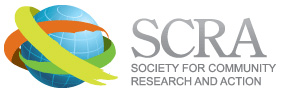submitted by A. Simons-Rudolph
Highlights
Decolonization is a process of examining and undoing unearned privilege resulting from historical and present day injustice.
────
As a process, decolonization can push students from apathy to develop a sense of activism.
(De)colonization is a reclaimed historical term that is related to, but different from, social justice. It is a process of thoughtfully removing the leftover impacts of oppression. Communities can decolonize by deconstructing hierarchies and other social structures that support a discriminatory status quo.
You may have heard that decolonialization is crucial to authentically improving race relations and addressing other forms of injustice. But what does it really mean to revisit the sins of past generations, become a critical observer of our current social structure, and face up to unearned privilege?
What is Decolonization?
The practice of colonizing is best known in western history when a more powerful country or clan claims the resources of another without permission or just compensation. For example, Great Britain colonized India, stripping the land of its natural resources, and depriving its people of basic needs and a right to self-govern. Although the word “colonization” is not as frequently used in this sense, Americans “colonized” people in the western U.S. when they displaced and killed whole indigenous tribes in their search for land, resources, and eventually expanding eastern railroads. The legacy of colonization is discrimination, oppression, and unearned social privilege.
So what does it mean to de-colonize? Decolonization, is a process of examining and undoing unearned privilege that is a result of these historical and present day processes. As Community Psychologists, we can define decolonization, but often fail to cite practical examples from our own field. Here is one specific project that intentionally decentered students and provoked them to thoughtfully evaluate the experience. Although this particular project was conducted on a college campus, the idea is transferable to other communities.
“Dominant voices, perspectives, and narratives that often shape mainstream curriculum and textbooks are decentered in order to amplify the voices, experiences, and histories of students often erased in the classroom.” (pg. 2)
The Project
In “#WEWANTSPACE: Developing Student Activism Through a Decolonial Pedagogy”, Silva and her undergraduate students discuss practical strategies that they created for “decentering dominant groups” and holding space for previously marginalized voices. Further, the authors found that decolonization can develop a sense of activism.
Process
Silva and her students describe The Practical Activist Project wherein 45 students were required to work together to conduct in-depth thinking about a particular part of our society and how it might need to change. The outcome of the project was “practical activism” or social action that created a student group (The Students for Diversity Now) which advocated for a Diversity Center on campus.
Lessons Learned
- Those with power in a group (e.g. leaders) must develop opportunities for others to confront common and harmful narratives, learn from diverse voices, and understand how individuals and institutions benefit from inequality as the status quo.
- Participatory Research Projects can help us confront our assumptions by taking us out of our own “comfort zone.”
- There are bound to be different roles in larger-scale discussions and social justice projects. Those selected to represent the many have a responsibility to ensure that they represent their group and fairly integrate non-dominant perspectives into the representation. One specific way that Silva et al achieved this is by selecting primary authors and asking other key stakeholders to review drafts of the final report at several points within the writing process.
What Does This Mean For the Field of Community Psychology?We need to provide more examples of how to live our Community Psychology principles. Future successful practice of Decolonial Pedagogy demands that we approach this task with humility and publish our success and failures. Original Citation: Silva, J. M., & Students for Diversity Now. (2018). # WEWANTSPACE: Developing Student Activism Through a Decolonial Pedagogy. American Journal of Community Psychology. Summary and Discussion by A. Simons-Rudolph. All omissions and errors are the responsibility of the author. Resources: The December 18, 2018 issue of the American Journal of Community Psychology delves deep into how people on the ground create opportunities for transformation. |



